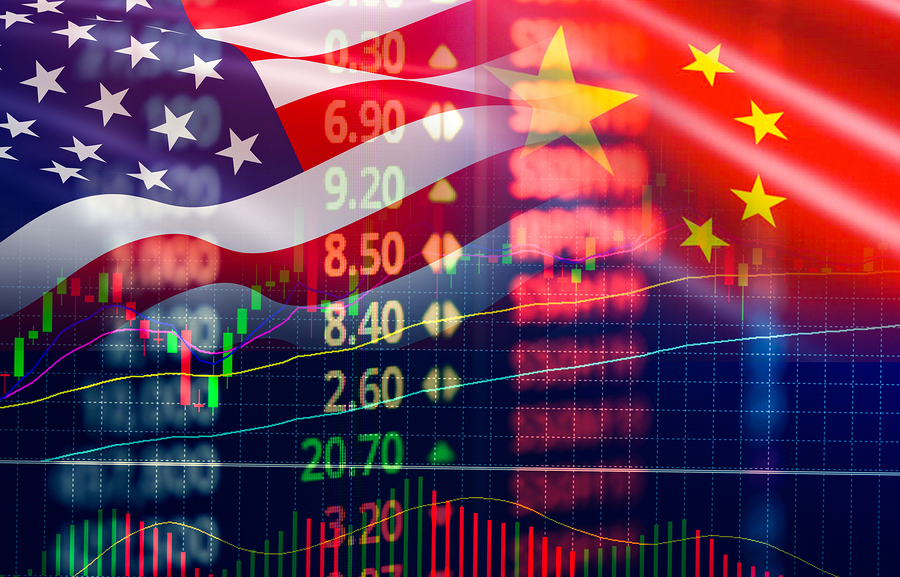President Trump’s latest trade deals are cooling some of the rhetoric surrounding the administration’s trade skirmishes, but contention remains. The stakes of the debate have been raised in recent years, with many protectionists now insisting that free trade is worse than impoverishing; it’s deadly.
This narrative is alarming and politically compelling. It’s also unconvincing when you look at all the facts.
Skeptics of free trade have long alleged that competition with foreign producers increases domestic unemployment and lowers wage rates — an allegation that economists have challenged for 250 years with theory and data. Backed by this data, American free-traders mostly got their way for decades.
More recently, Princeton University economists Anne Case and 2015 Nobel Prize winner Angus Deaton coined the term “deaths of despair” to describe increases in suicides, accidental poisonings and alcohol-related liver disease. Other economists have blamed these deaths on trade liberalization.
Front-and-center in this narrative is trade with China, which in 2000 was granted Permanent Normal Trade Relations status with the United States and in 2001 joined the World Trade Organization. David H. Autor, David Dorn and Gordon H. Hanson later found that, from 1999 through 2011, in locales especially exposed to Chinese imports the so-called “China Shock” destroyed up to 2.4 million jobs.
The shock is blamed for decreased marriageability among displaced workers, degraded social relationships, and more widespread feelings of loneliness. Case and Deaton suggest that exposure to imports ultimately served to “undermine social life and the structure of society, destroying the American Dream for many, and bringing on increased mortality.”
If this account is valid, the case for free trade would be severely undermined. However, there are other reasons to believe that the connection between free trade and fatalities is weak.
For starters, manufacturing jobs as a share of total nonfarm employment began falling steadily in 1954, with no acceleration in 1999. Before and after China ramped up exports to the United States, manufacturing employment as a share of total employment fell by 2 percent annually.
Further, as trade economist Robert Feenstra and his co-authors discovered, “the negative effects of import competition on U.S. employment are largely balanced out” by the “job-creating export expansion” that has taken place at home. Of the areas most affected by trade, many experienced growth in nonfarm employment above the national average. They may have experienced a decline in manufacturing jobs, but growth in other industries offset the decline.
Most tellingly, while “deaths of despair” are highly concerning and on the rise nationwide, the geographic areas that suffered the most significant increase in these tragedies are not those that have experienced the most manufacturing job losses.
The Mountain States region, which is among the least affected by foreign manufacturing competition, experienced the highest rate of increase in suicides. The Centers for Disease Control and Prevention found that more trade-affected Appalachia saw a troubling increase of 30 percent from 1999 to 2016, while Montana, Idaho and Wyoming saw their rates increase by 40 percent.
Additionally, alcohol-induced deaths increased the most in less trade-affected Midwestern and Western states such as Oregon, Arizona, Nebraska, South Dakota, Oklahoma and Iowa during that period.
Accidental poisonings (primarily made up of drug overdoses) align more with trade-affected regions, and drug-induced death rates from 1999 to 2016 increased the most in West Virginia, Ohio and New Hampshire. Accidental poisonings are also prevalent in less trade-affected areas like the Mid- and South-Atlantic, making the connection and case to weigh down the economy with protectionist policies weak.
These regional mismatches over the last quarter century cast serious doubt on the notion that trade liberalization generally, and the “China Shock” in particular, have had such deadly consequences. Deaths of despair have caused devastation across the country and left no community untouched. However, limiting the many opportunities that trade creates for Americans, even if the process is imperfect, is not the answer.


